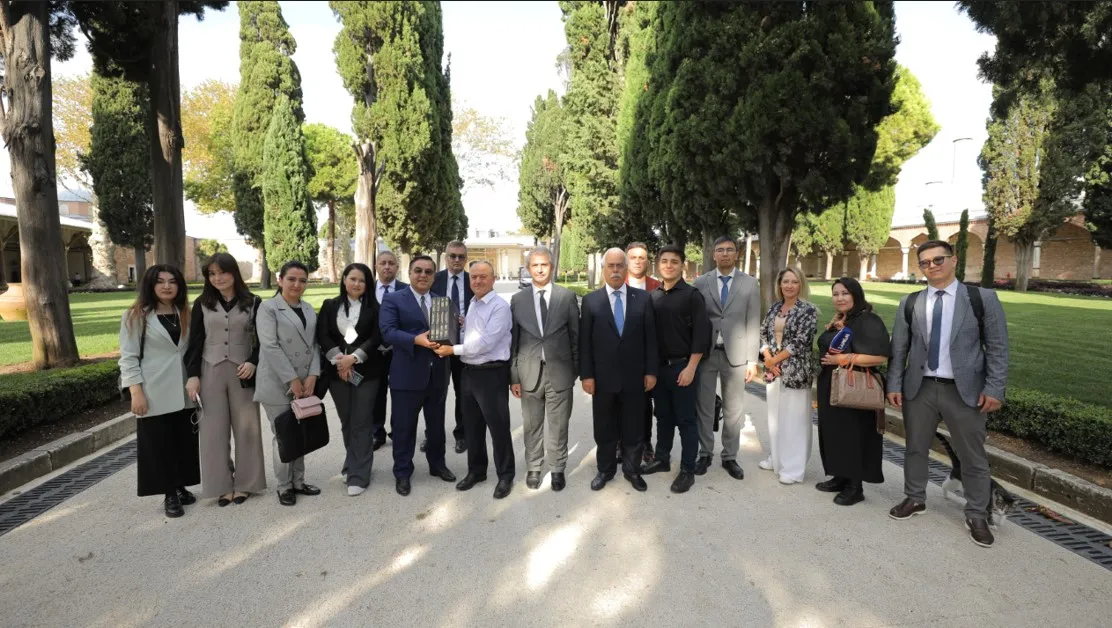
Members of the delegation visited "Outdoor Factory" in Istanbul, a company that showcased its projects for enriching the museum of the Center for Islamic Civilization of Uzbekistan. The company's head, Sinan Turaman, spoke about the work being carried out at the Museum of the Turkish President in Istanbul.
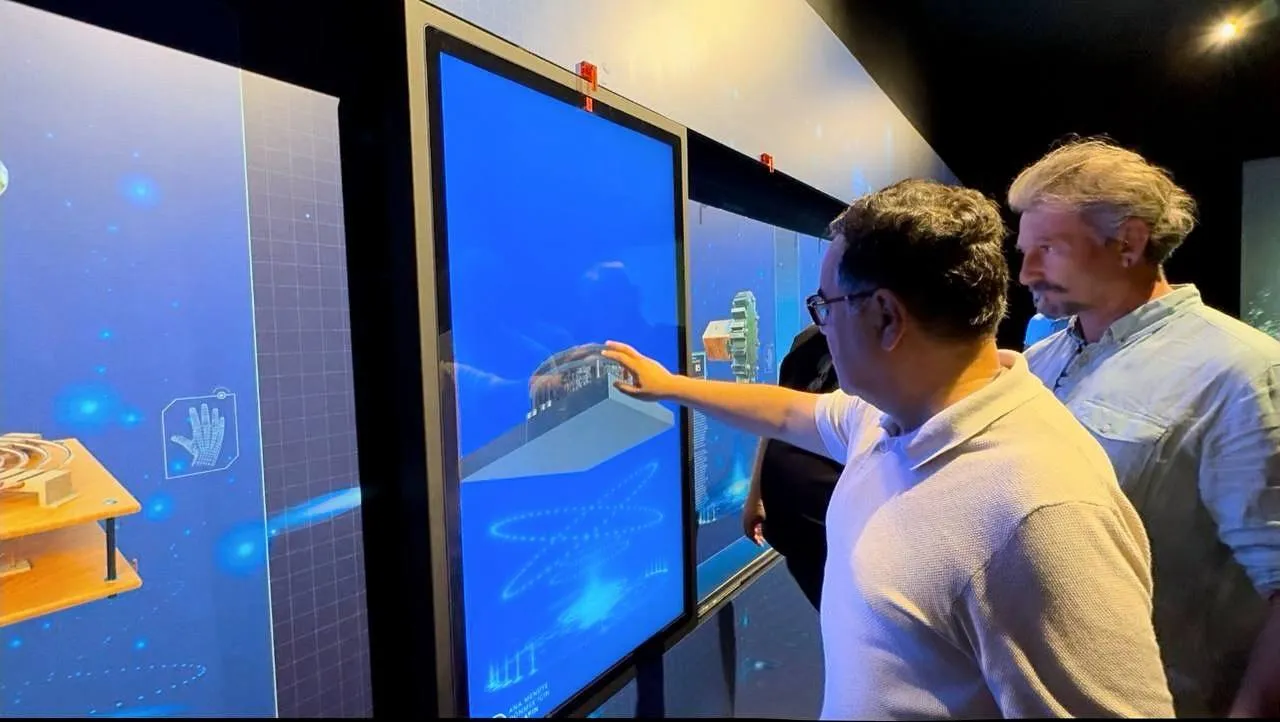
During the visit, meetings were held at prominent locations such as Hagia Sophia, the Blue Mosque, Topkapi Palace, the ancient city of Ephesus, the Mausoleum of Halicarnassus, and the open-air miniature museum Miniatürk, which features scaled-down models of these famous historical landmarks.
Specialists from the Center studied the work of these historical sites, museums, libraries, and other educational institutions.
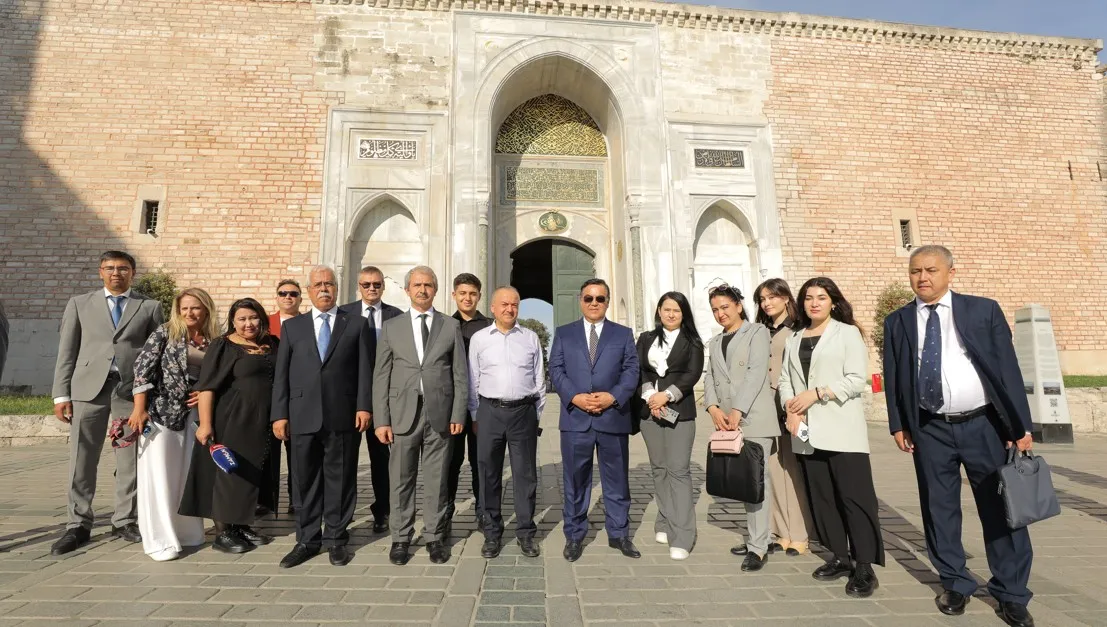
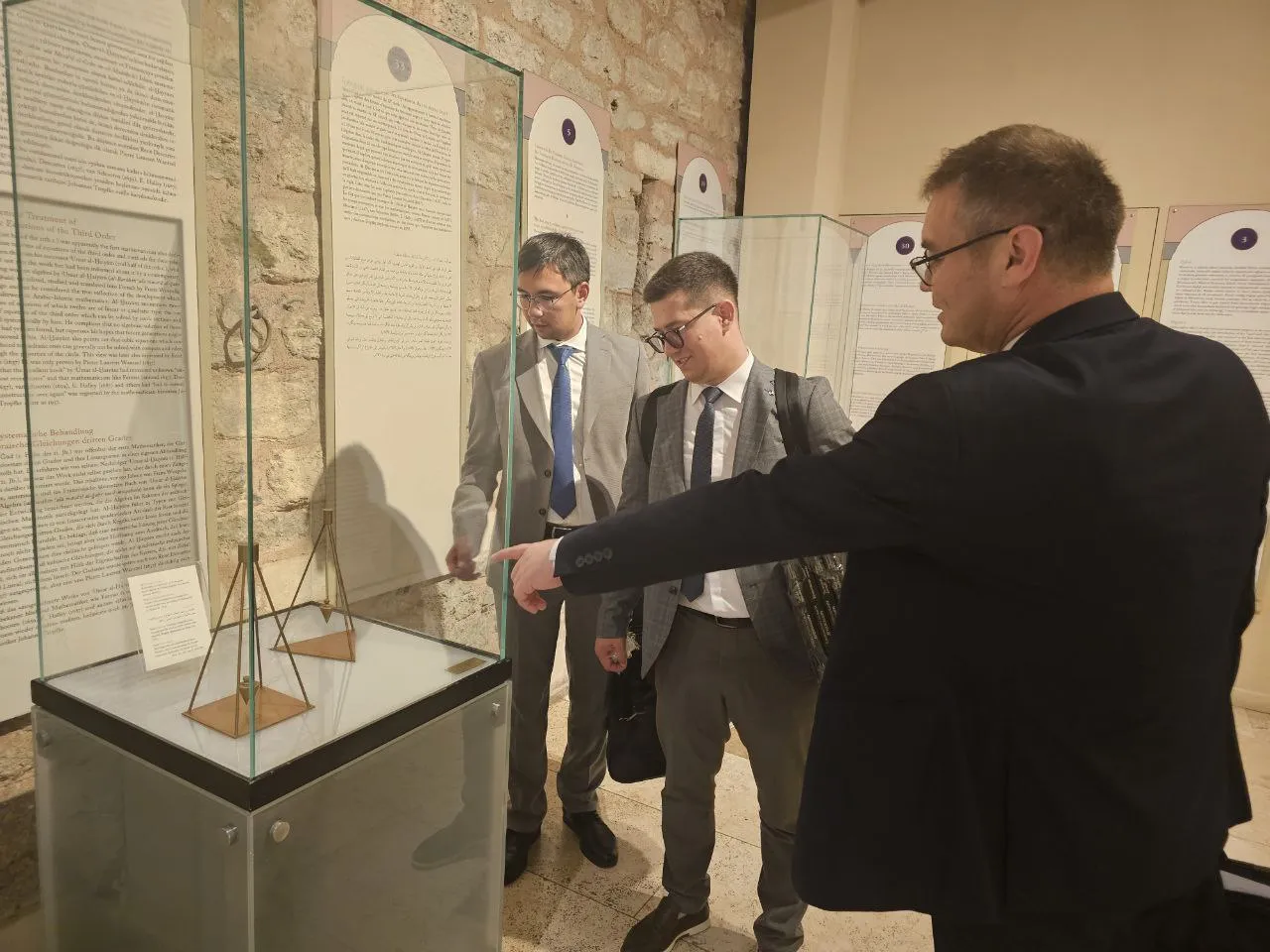
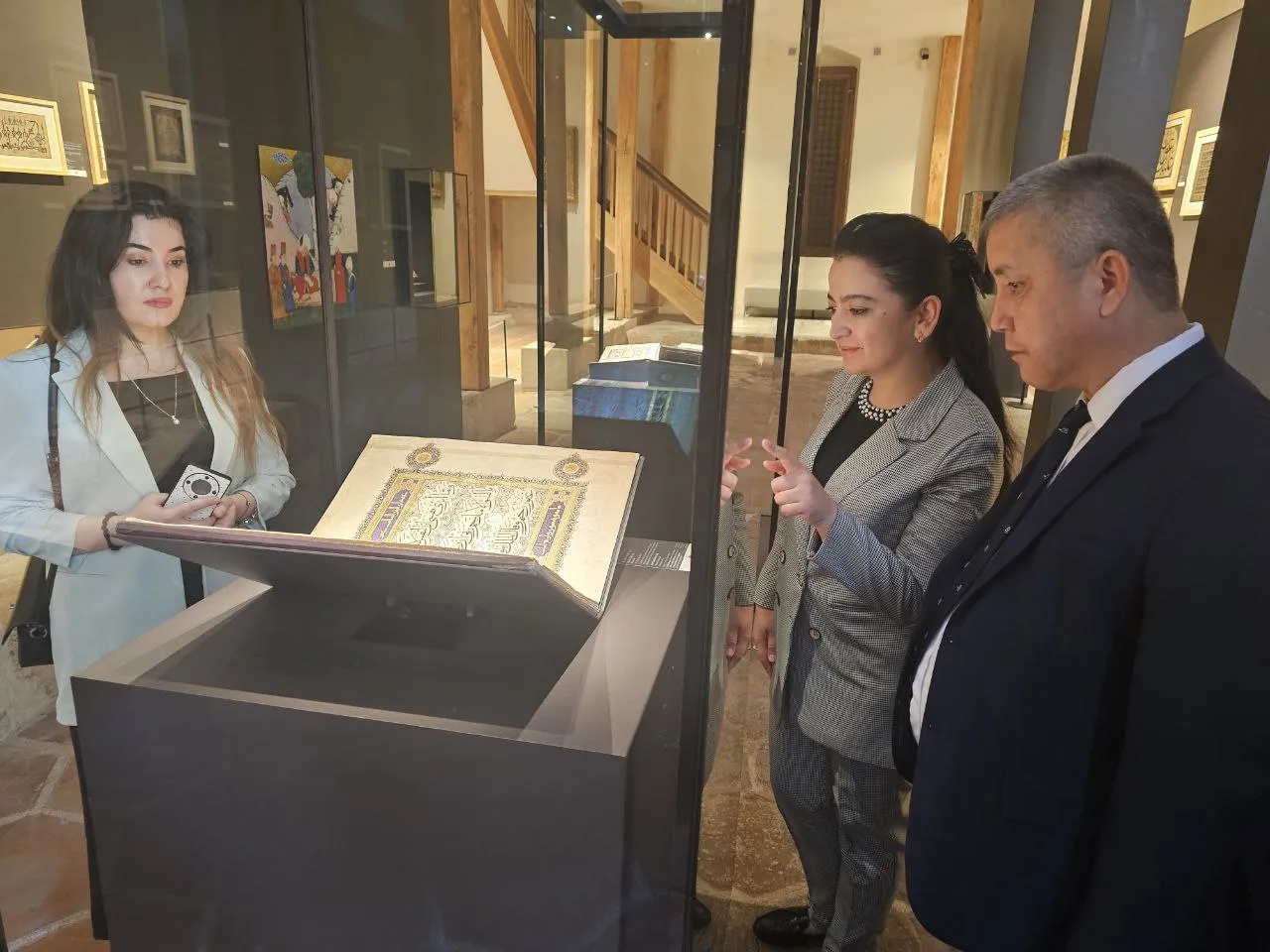
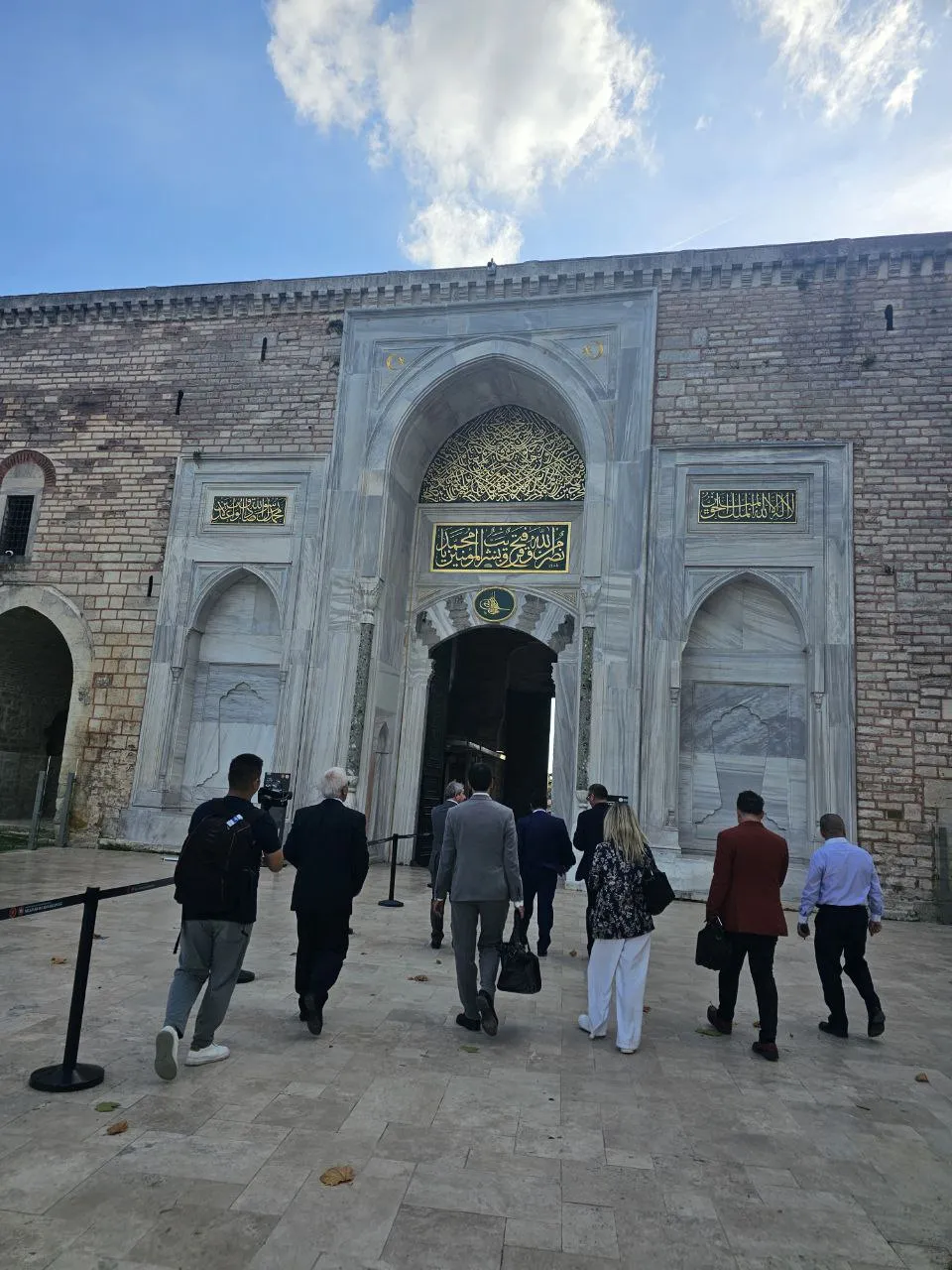
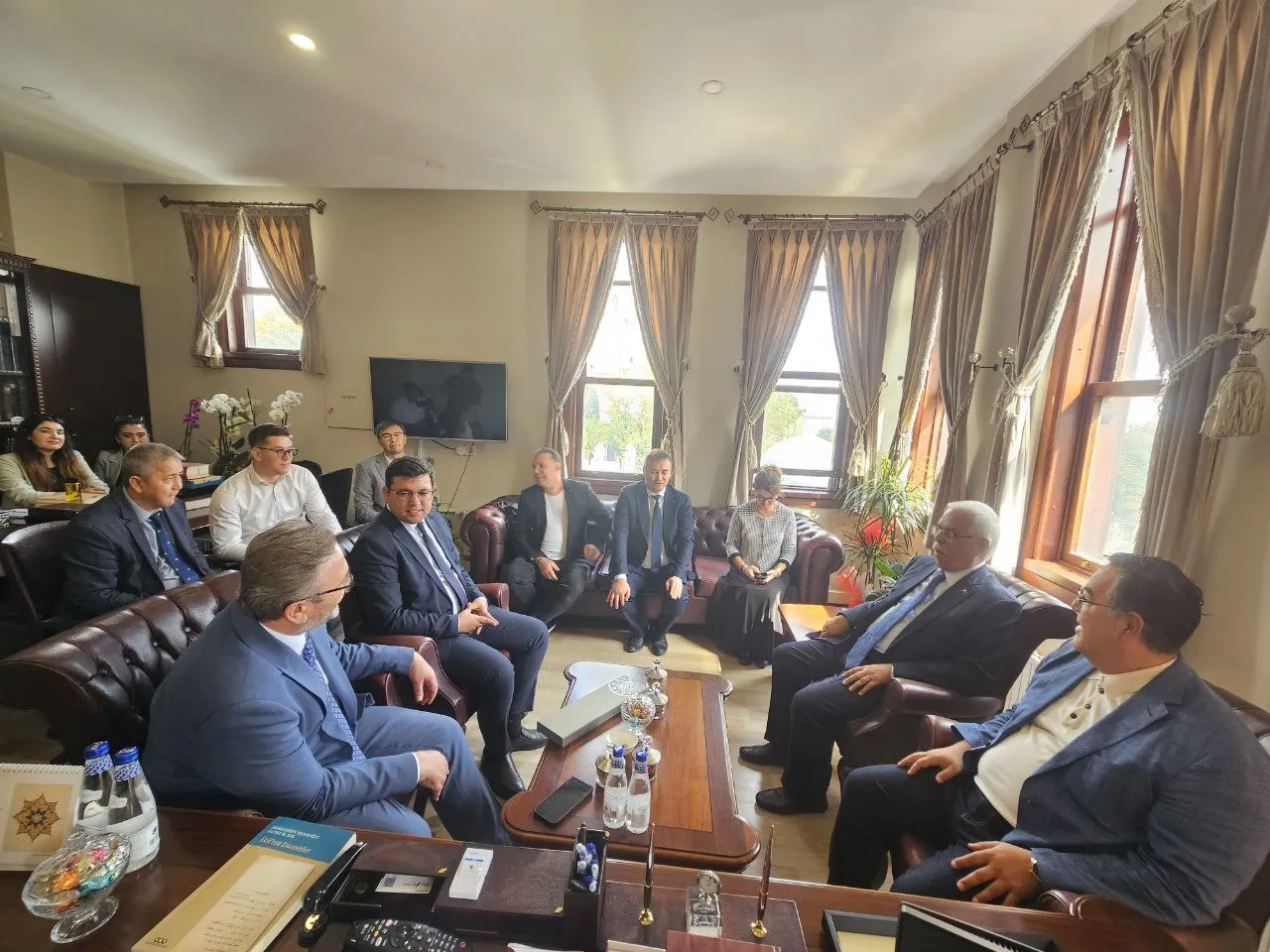
The delegation also explored Turkey's experience in utilizing modern interactive programs and achievements. Notably, they were introduced to the "Deneyap Technology Atölyesi" educational program aimed at children and youth, the Museum of Illusions in Istanbul, the Museum of Modern Art in Turkey, the "Panorama 1453" Museum dedicated to the conquest of Istanbul by Sultan Mehmet II, and the Hagia Sophia History Museum. These institutions demonstrated cutting-edge methods, various 3D shows, and video content.
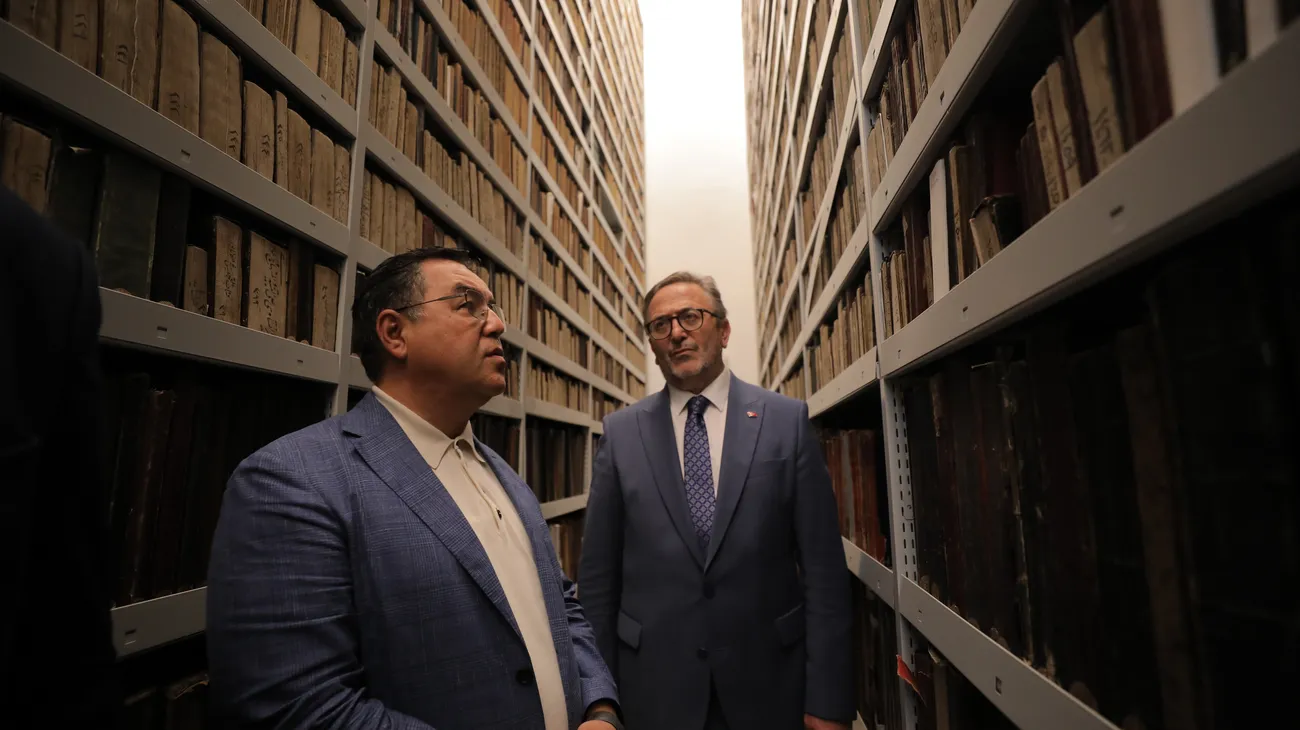
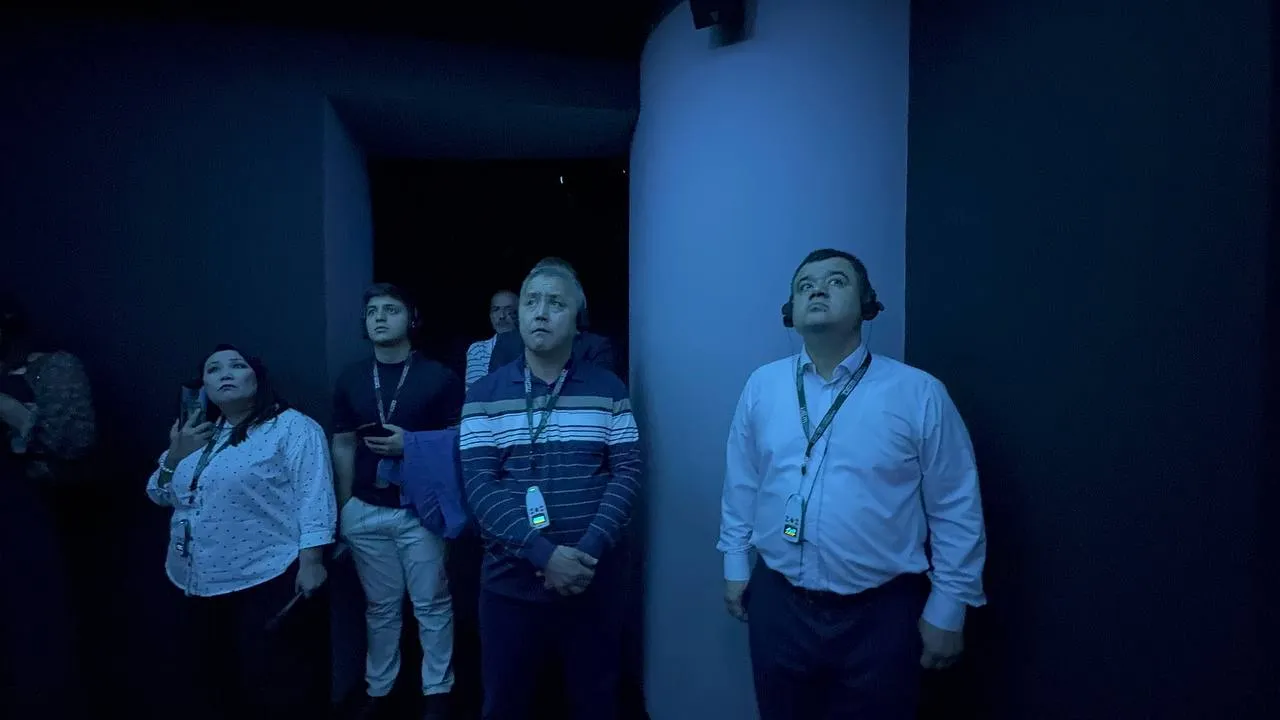
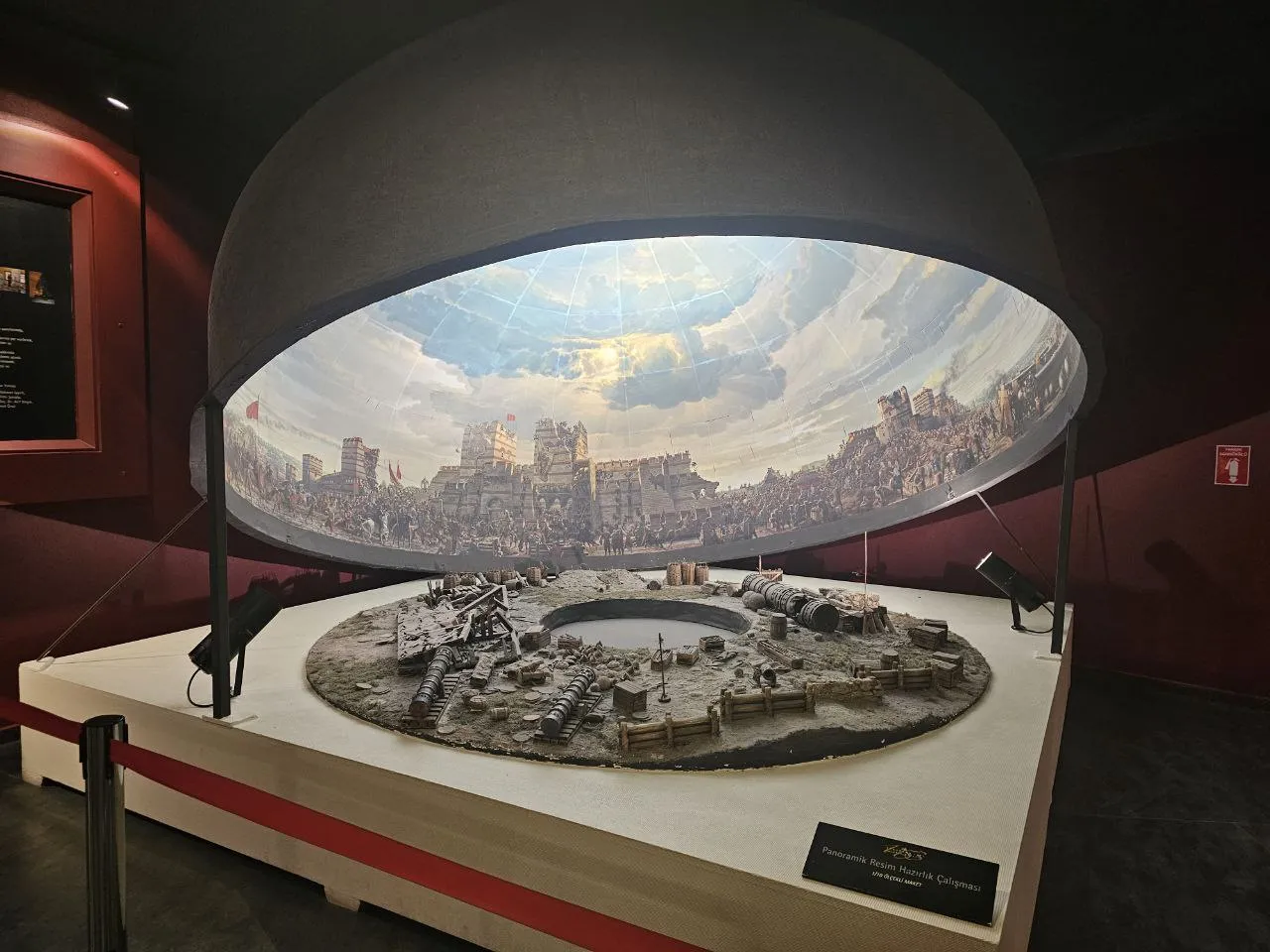
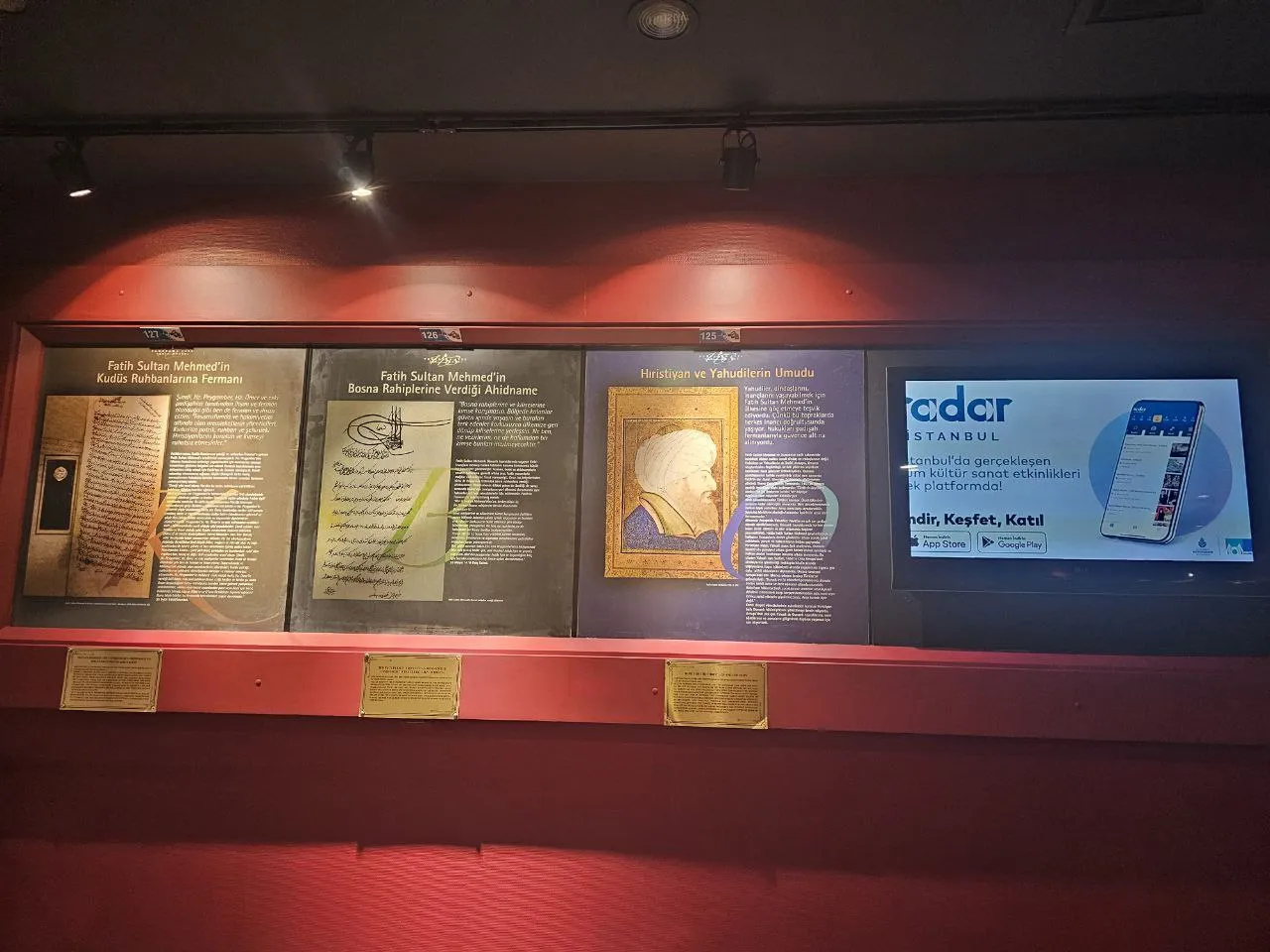
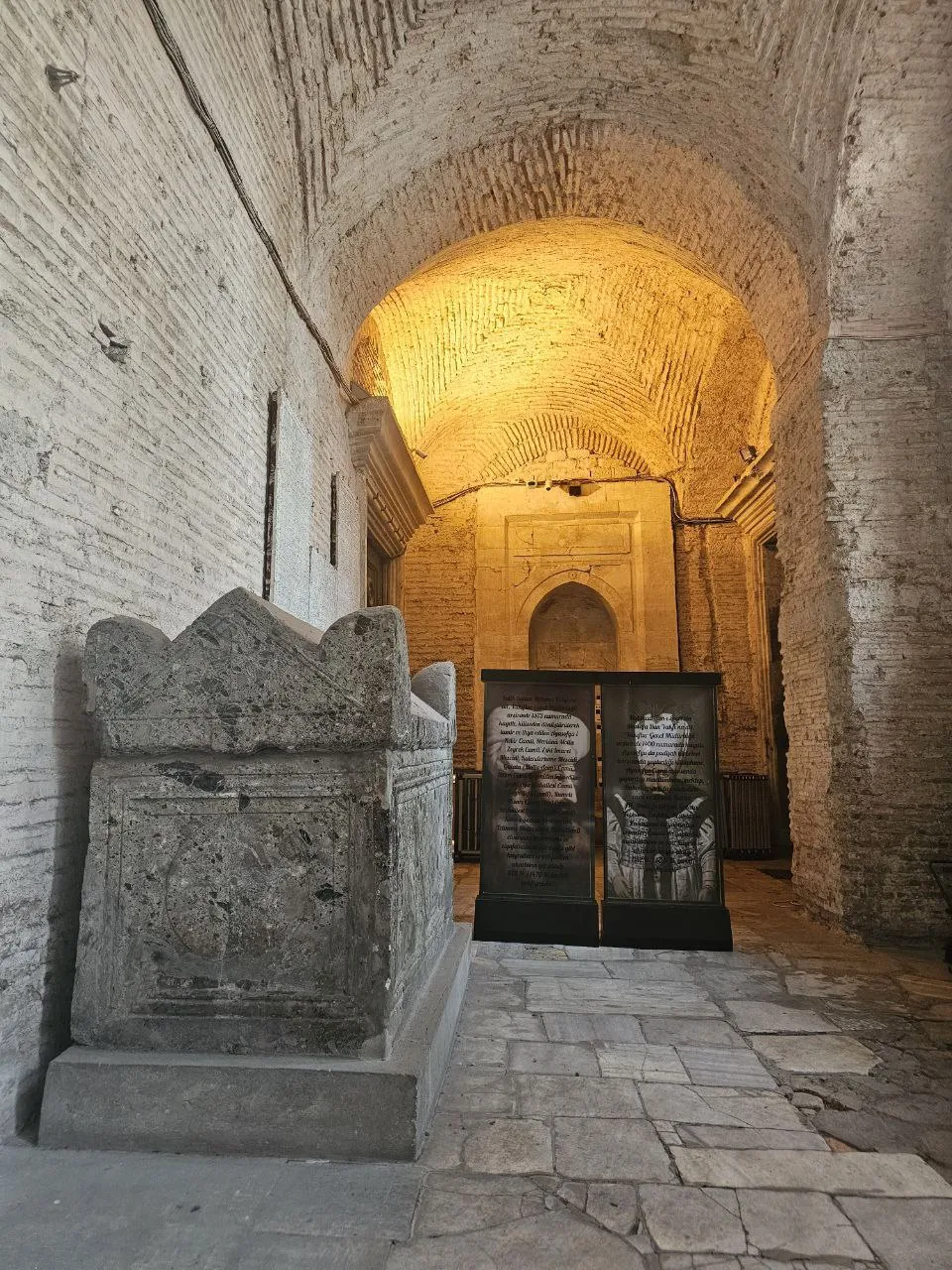
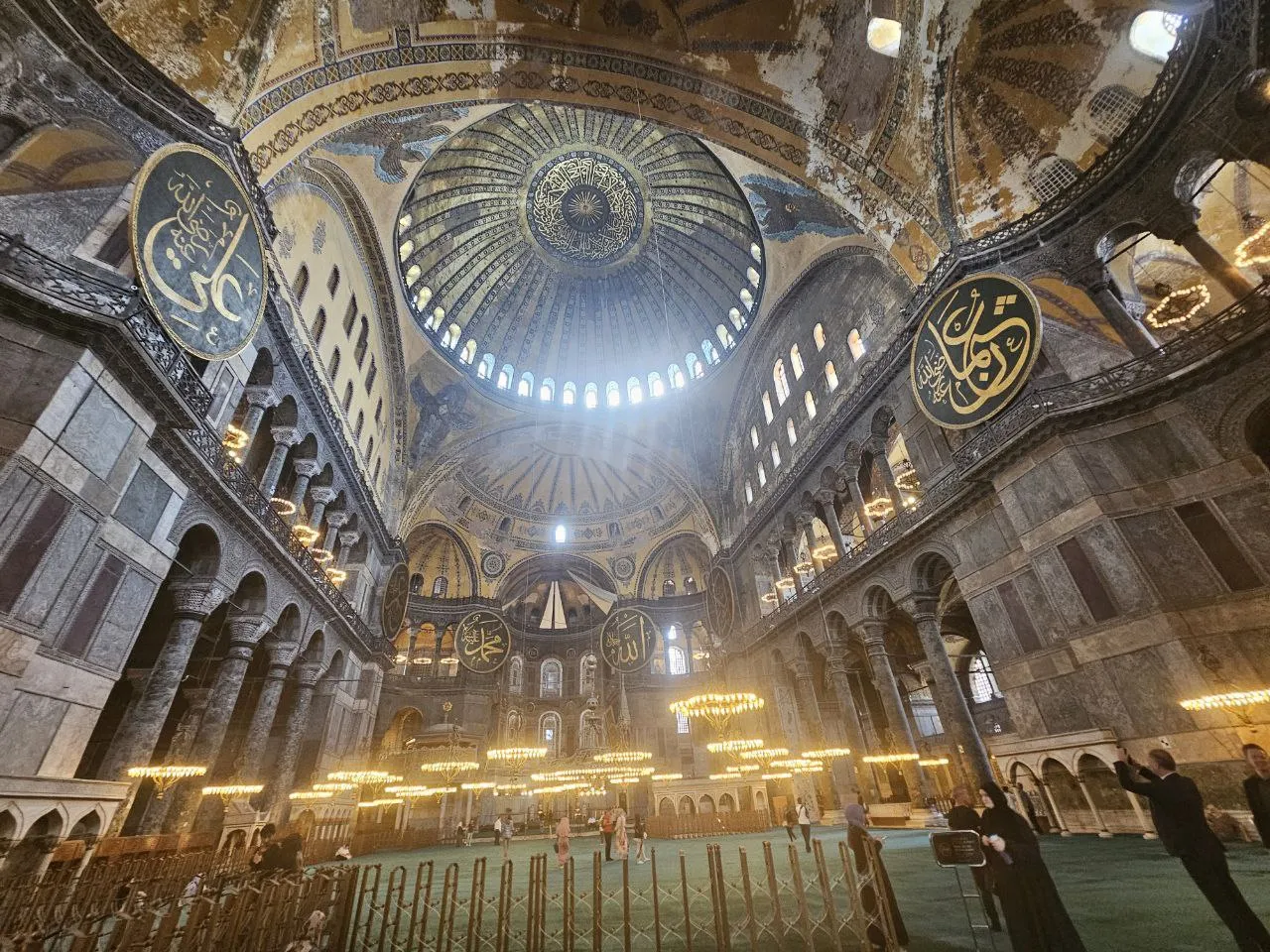
During the scientific and creative trip, the delegation of the Center for Islamic Civilization of Uzbekistan was accompanied by Yasin Yıldız, Head of the Turkish National Palaces Administration, Coşkun Yılmaz, Head of the Manuscripts Department of Turkey, as well as professors from several prestigious universities, scholars, and specialists. During meetings and visits in Istanbul, the delegation also examined rare manuscripts and historical artifacts related to the cultural heritage of Uzbekistan.
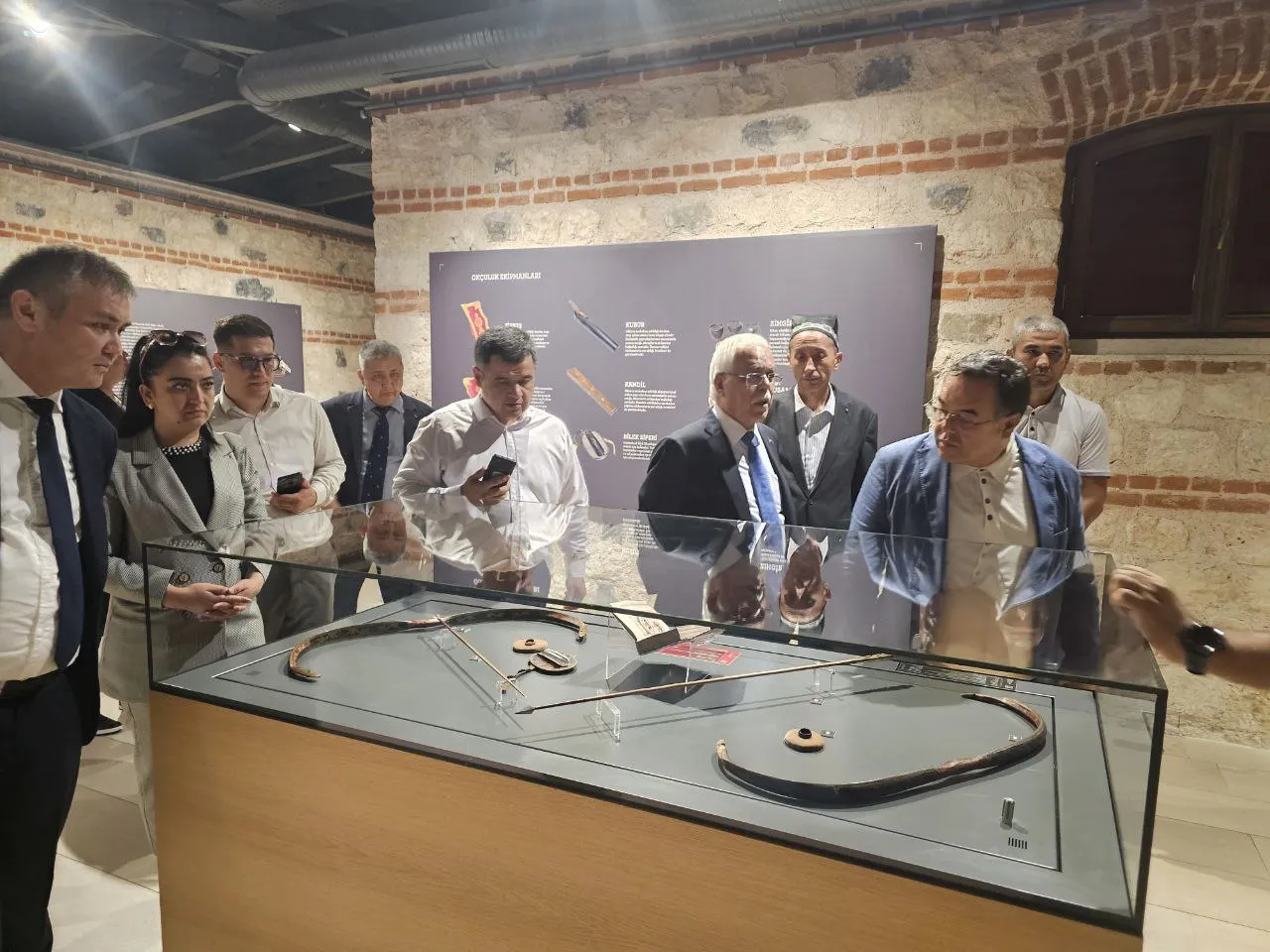
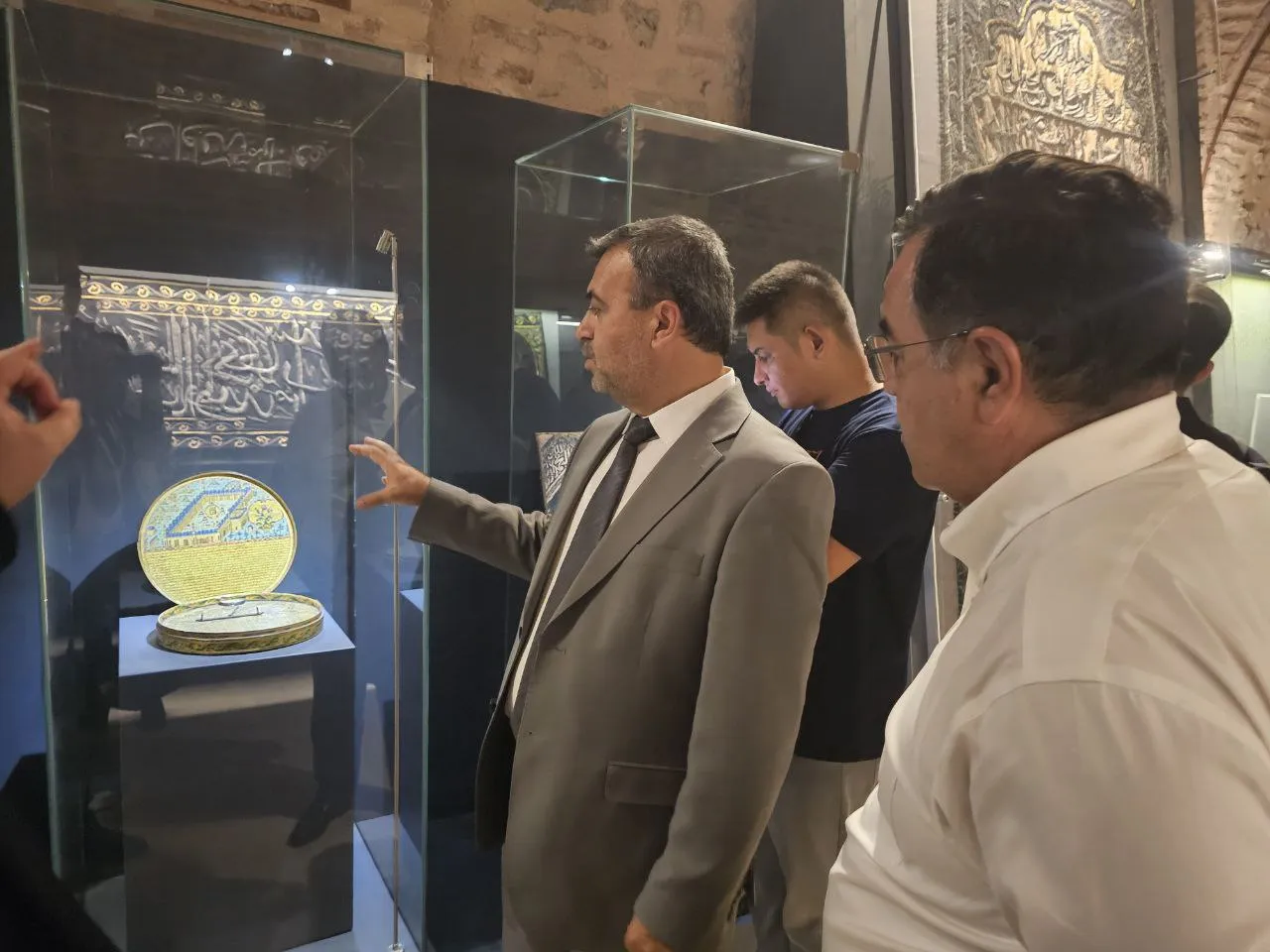
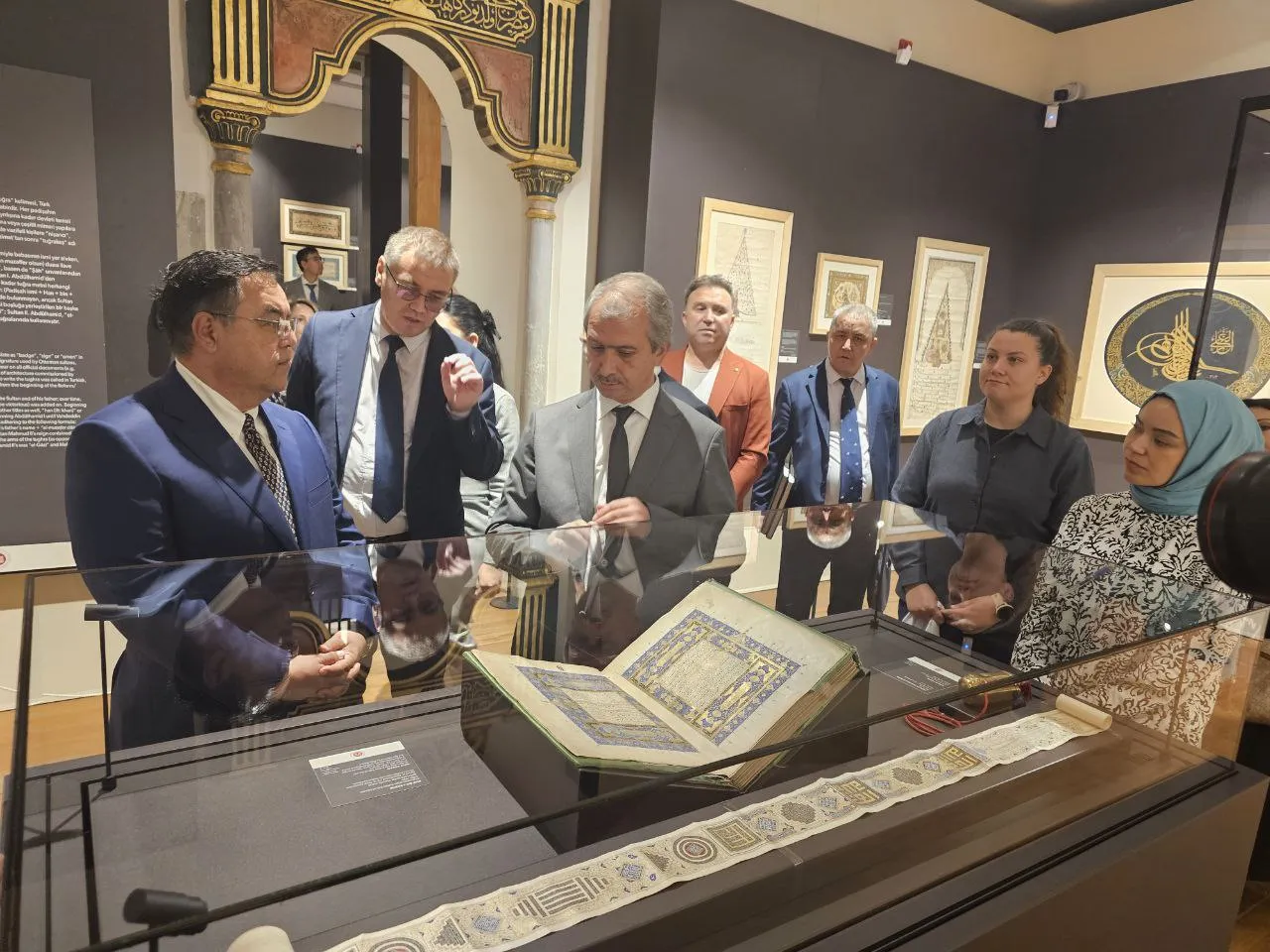
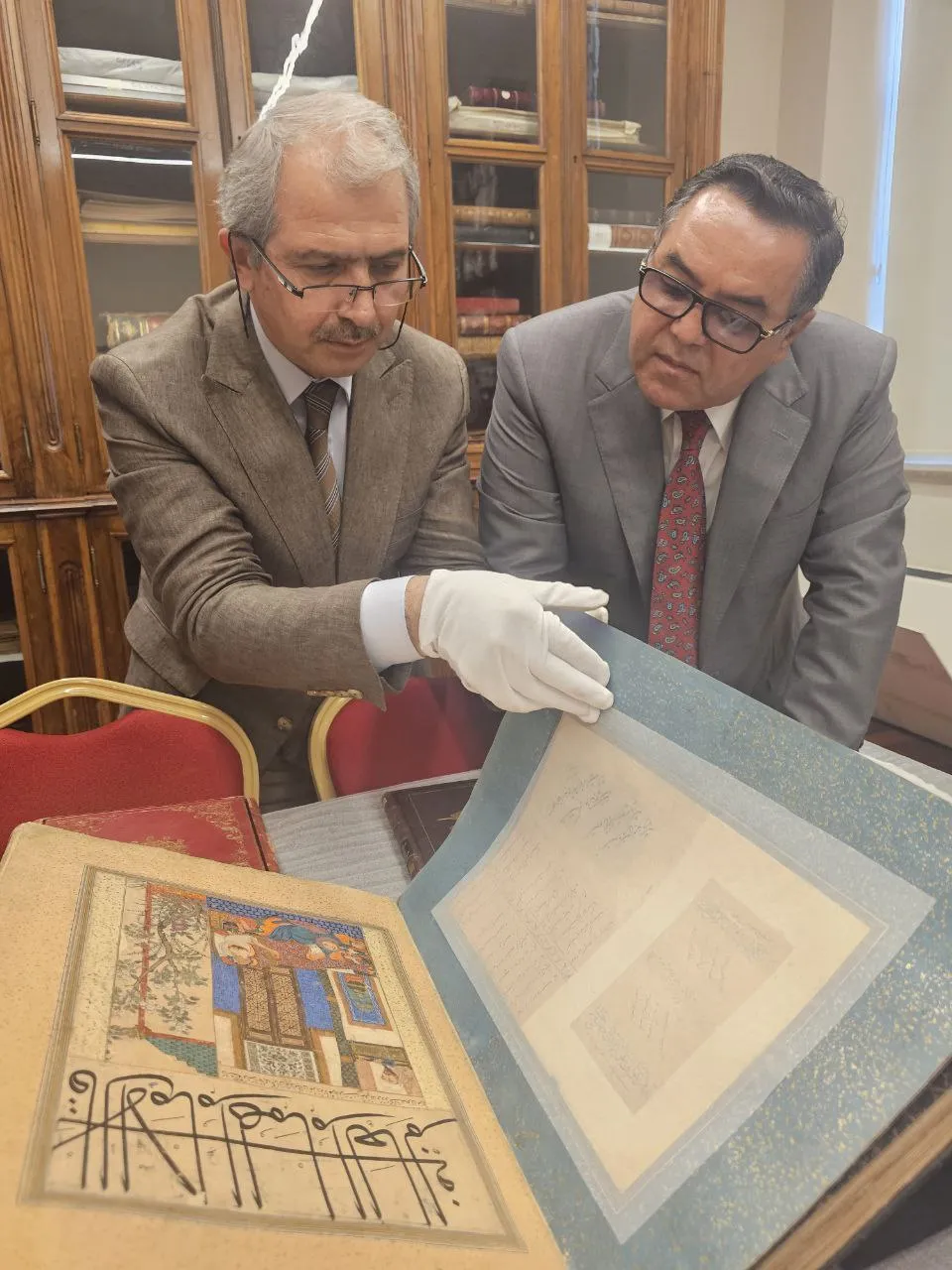
For example, at the Yıldız Palace, which is a rare example of Turkish and European architecture, there is a Quran gifted by the Khan of Kokand Amir Umar Khan to the Ottoman Sultan Mahmud II. The Topkapi Museum houses rare artifacts from the Timurid era, including gifts from the Emir of Bukhara to Sultan Abdulhamid II, as well as the rarest and most sacred relics of the Islamic world.
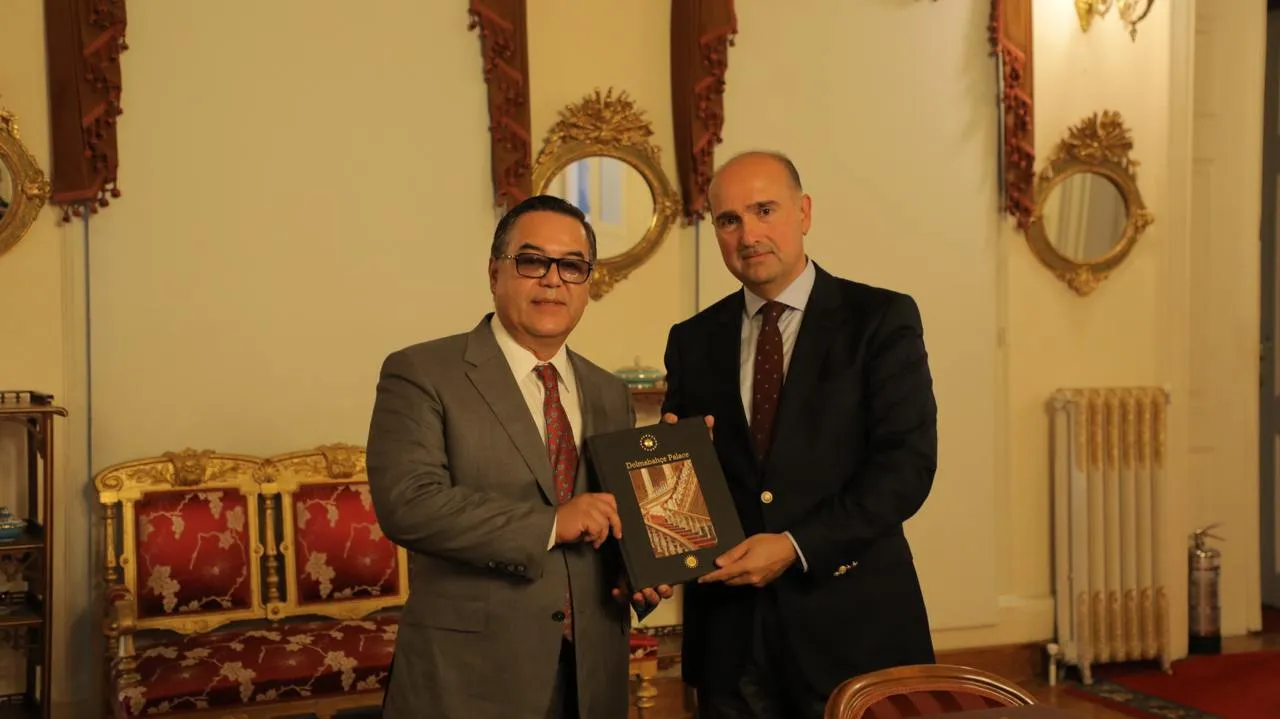
During a meeting at Dolmabahçe, one of Turkey’s most significant historical sites, Firdavs Abdukhalikov, Director of the Center for Islamic Civilization of Uzbekistan, and Yasin Yıldız, Head of the National Palaces Administration under the President of Turkey, exchanged views on the necessity of combining scholarly forces and capabilities to study our shared cultural heritage.
"The work carried out by the President of Uzbekistan, Shavkat Mirziyoyev, to widely promote the principles of enlightened Islam on a global level and preserve cultural heritage deserves special attention," said Yasin Yıldız. "In Turkey, extensive work is also being done in this regard. During negotiations between the leaders of the two countries, great emphasis is placed on developing cooperation in this area. We are confident that this visit by our Uzbek friends will open up new opportunities for scholars and researchers from both countries."

During the meeting, it was also proposed to organize a joint forum as part of the cooperation between Uzbek and Turkish scholars. Yasin Yıldız expressed his readiness to collaborate on publishing new album-books from the "Cultural Legacy of Uzbekistan" series in partnership with Turkey’s national palaces, museums, and libraries.
The land of Turkey is the final resting place of great saints and prominent thinkers. Here lie our ancestors, who were born in the territory of Uzbekistan and later traveled to the ancient Roman Empire, where they spent their final days. Members of the delegation visited the grave of Ali Qushji, buried in the Eyüp Sultan Mausoleum in Istanbul, as well as the Uzbek Tekke (Khanqah) in Üsküdar, which once served as a temporary refuge for our compatriots on pilgrimage. They paid tribute to the spirits of their ancestors.
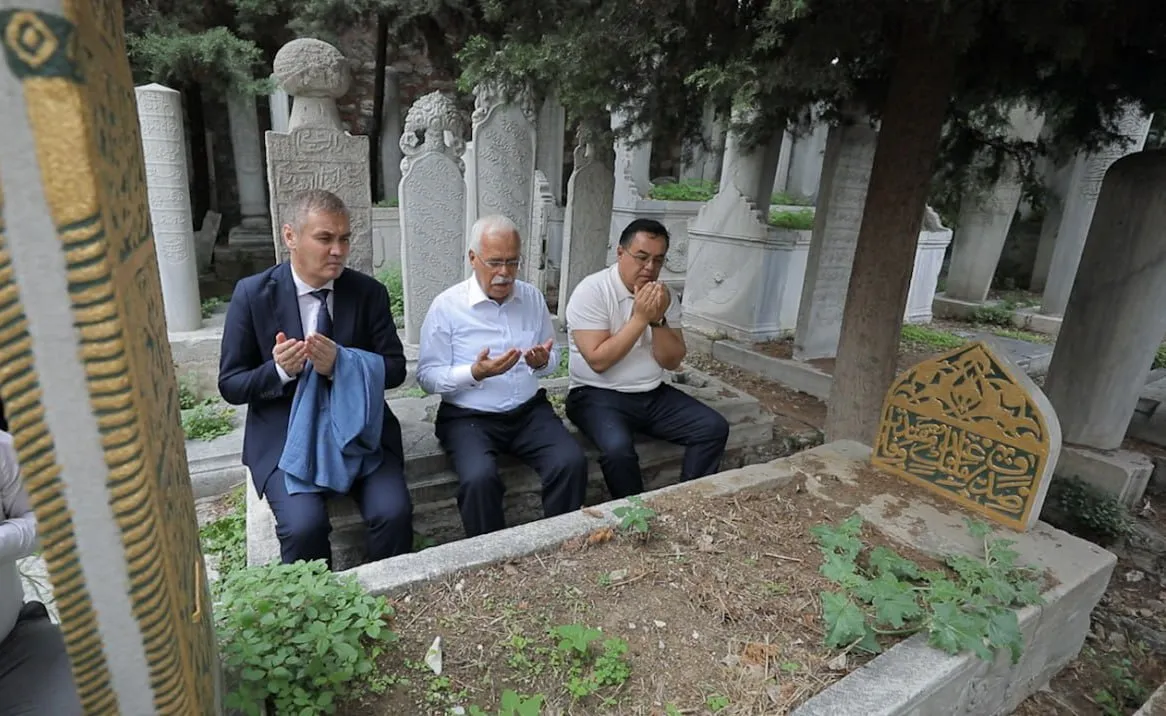
The Center for Islamic Civilization of Uzbekistan maintains ongoing cooperation with printing houses and designers from the brotherly country. During the visit, meetings were held with Hasan Kondu, the director of "Mega Basim" publishing house, and calligrapher Hüseyin Kutlu, who incorporates elements of style and decoration used for 1,500 years in Quranic writing. Discussions were held regarding the publication of albums and books such as "Historical personalities in the masterpieces of the manuscript heritage of Uzbekistan", "Clavijo’s Journey to the Court of Timur", "114 Qur'ans", and "Outstanding Manuscripts of Uzbekistan".
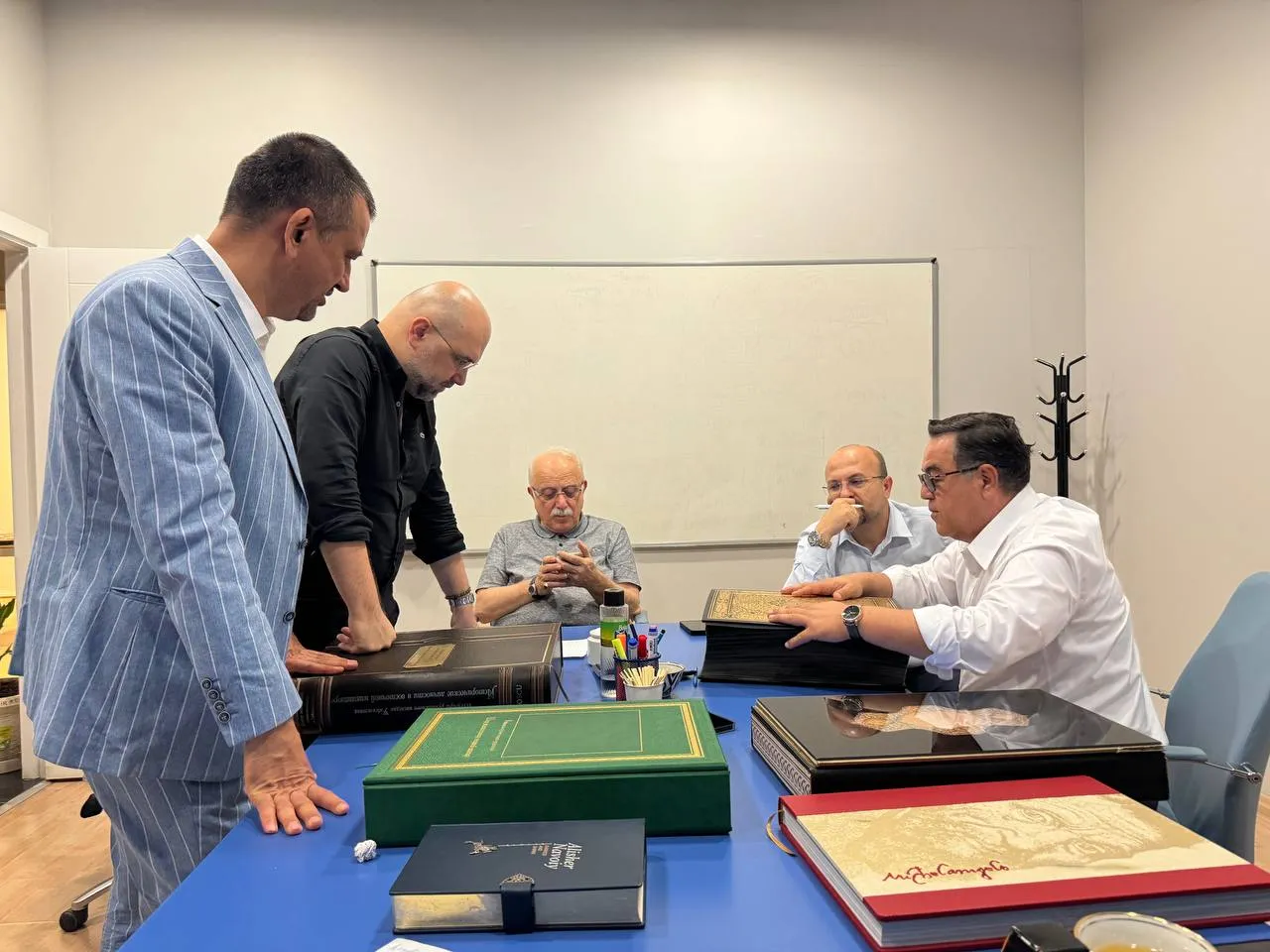
On September 17, a photo exhibition titled "New Uzbekistan: Time, Space, and Cultural Heritage", dedicated to the ancient and rich history and unique culture of Uzbekistan, was held at the IRCICA (Research Center for Islamic History, Art, and Culture). As part of the exhibition, a media event titled "Uzbekistan-Turkey: Common Roots and Common Heritage" and a presentation of the "Encyclopedia of Great Scholars of Uzbekistan" project took place. During this event, the Center for Islamic Civilization of Uzbekistan, along with the research centers of Imam Bukhari, Imam Termizi, and Imam Maturidi, were presented. An agreement was signed to create the "Encyclopedia of Great Scholars of Uzbekistan" between the Center for Islamic Civilization of Uzbekistan, the Islamic Research Center, and IRCICA.
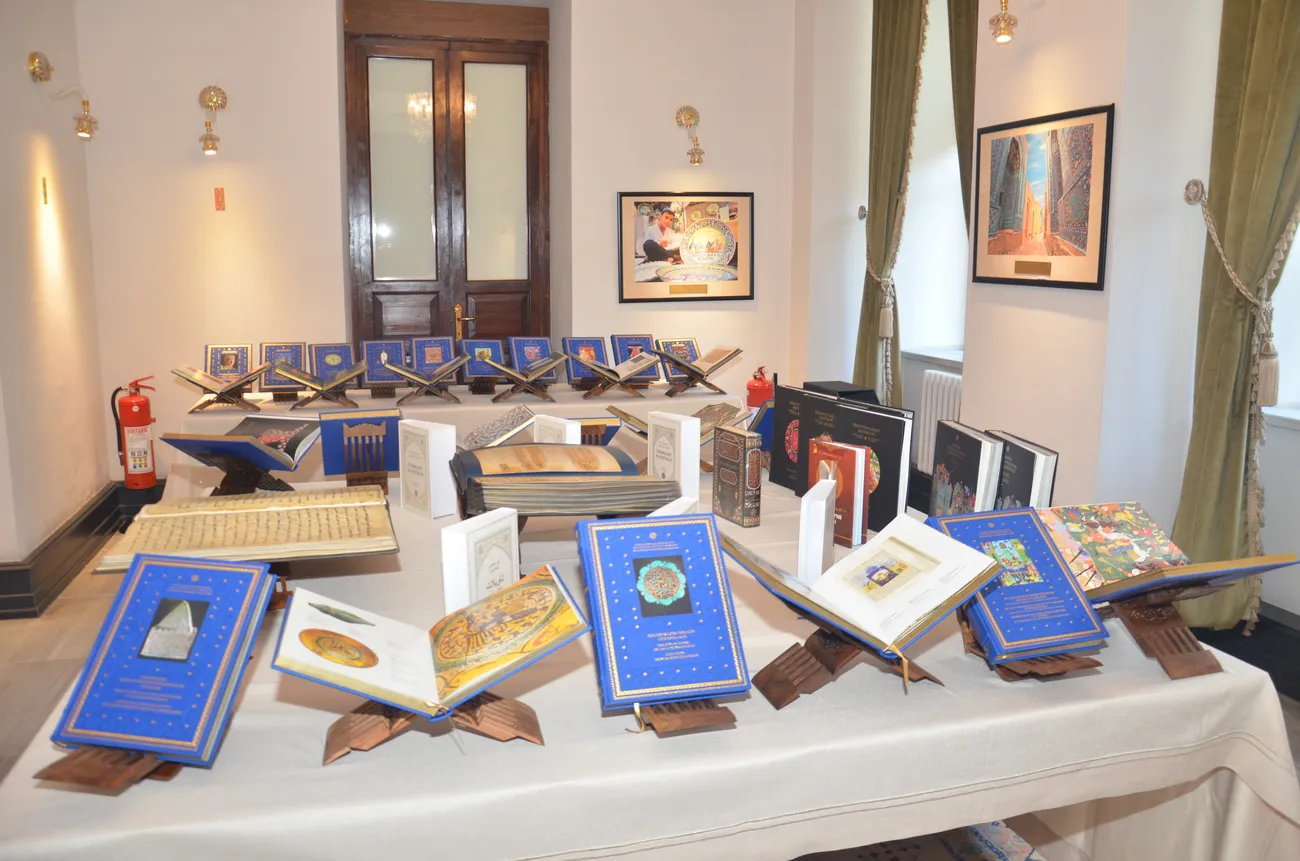

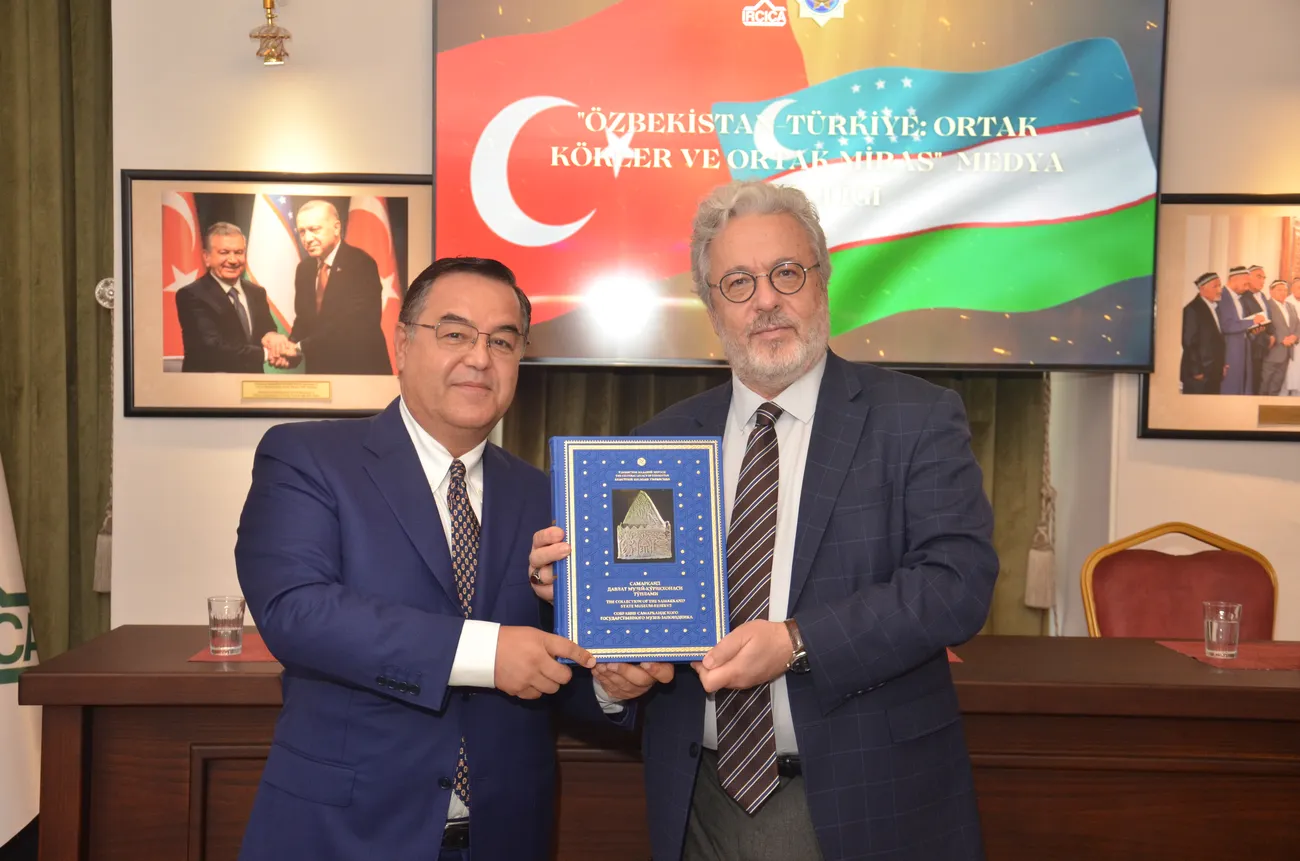
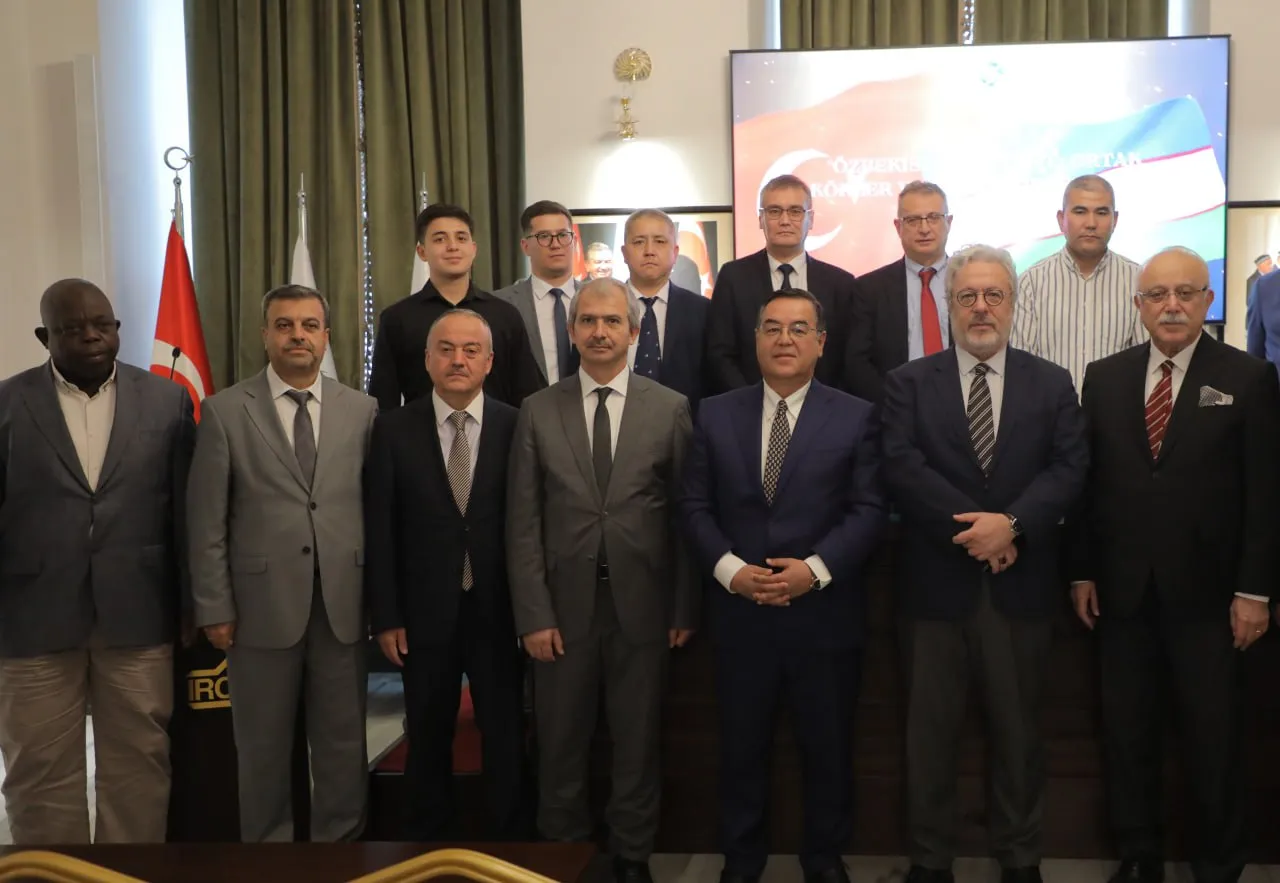
Particular attention was paid to studying the experience of the Fuat Sezgin Museum of Science and Technology, Topkapi Palace, and the Museum of Turkish and Islamic Arts. An agreement was reached to prepare facsimile editions of rare manuscripts, including Qur'ans written during the Golden Horde period and copied by Timur's grandson, Baysunghur Mirza. Professor Coşkun Yılmaz, Head of the Manuscripts Department of Turkey, presented the Center for Islamic Civilization of Uzbekistan and the Imam Bukhari Innovation Museum with a facsimile edition of the earliest complete manuscript of Sahih al-Bukhari from the 13th century. These fruitful meetings continued in Turkey's capital, Ankara.
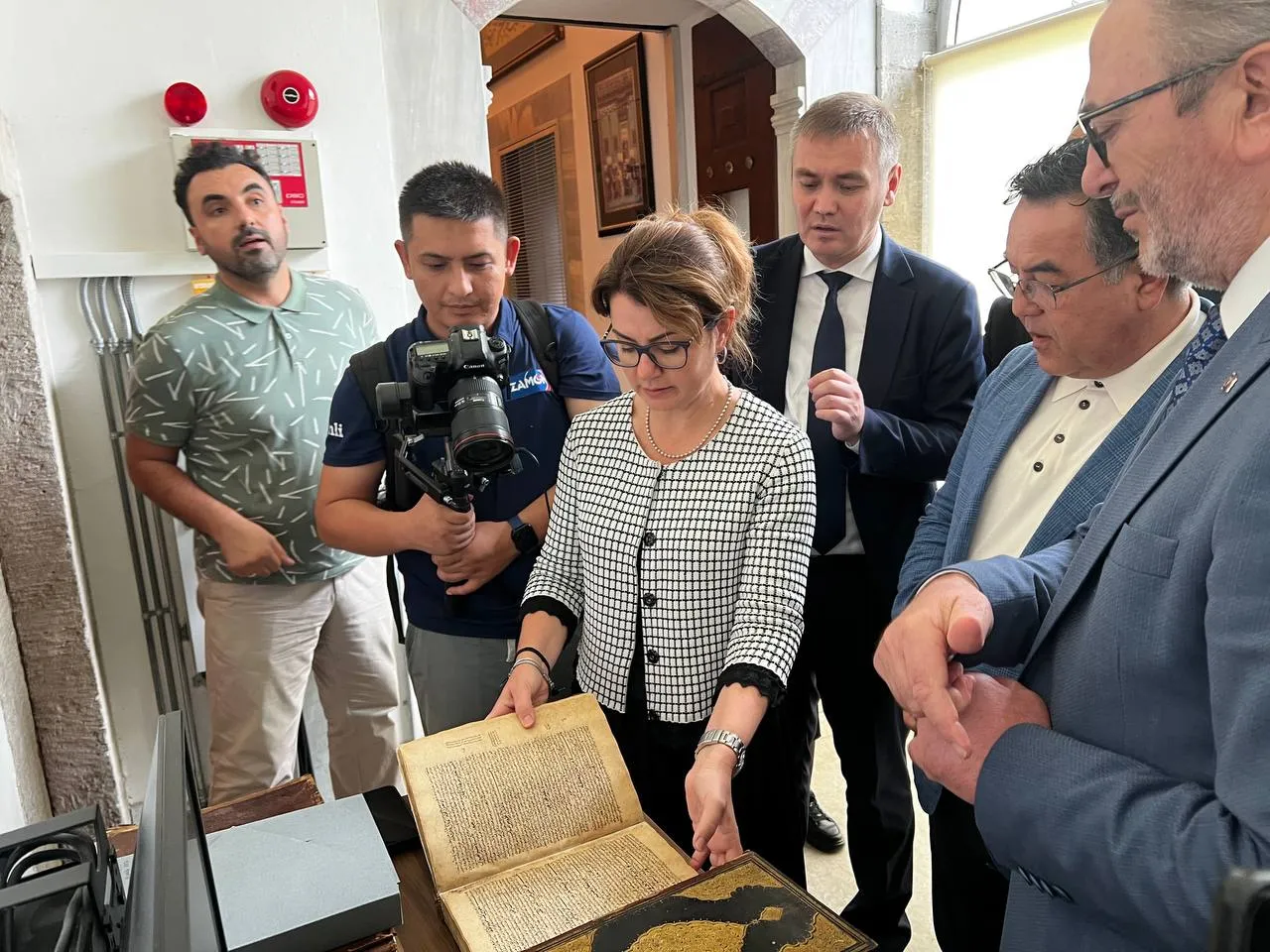
The former head of IRCICA, Halit Eren, continues to actively participate in the projects of the Center for Islamic Civilization of Uzbekistan.
"I closely follow the humanitarian reforms being carried out by the leader of Uzbekistan," said H. Eren. "I recently published an article on the global significance of these reforms in the Daily Sabah, an English-language newspaper in Turkey. This article generated great interest among representatives of diplomatic missions. I am currently working on a project to study the rarest Quran manuscripts stored in Turkey and belonging to Uzbekistan, in collaboration with the Center for Islamic Civilization of Uzbekistan."
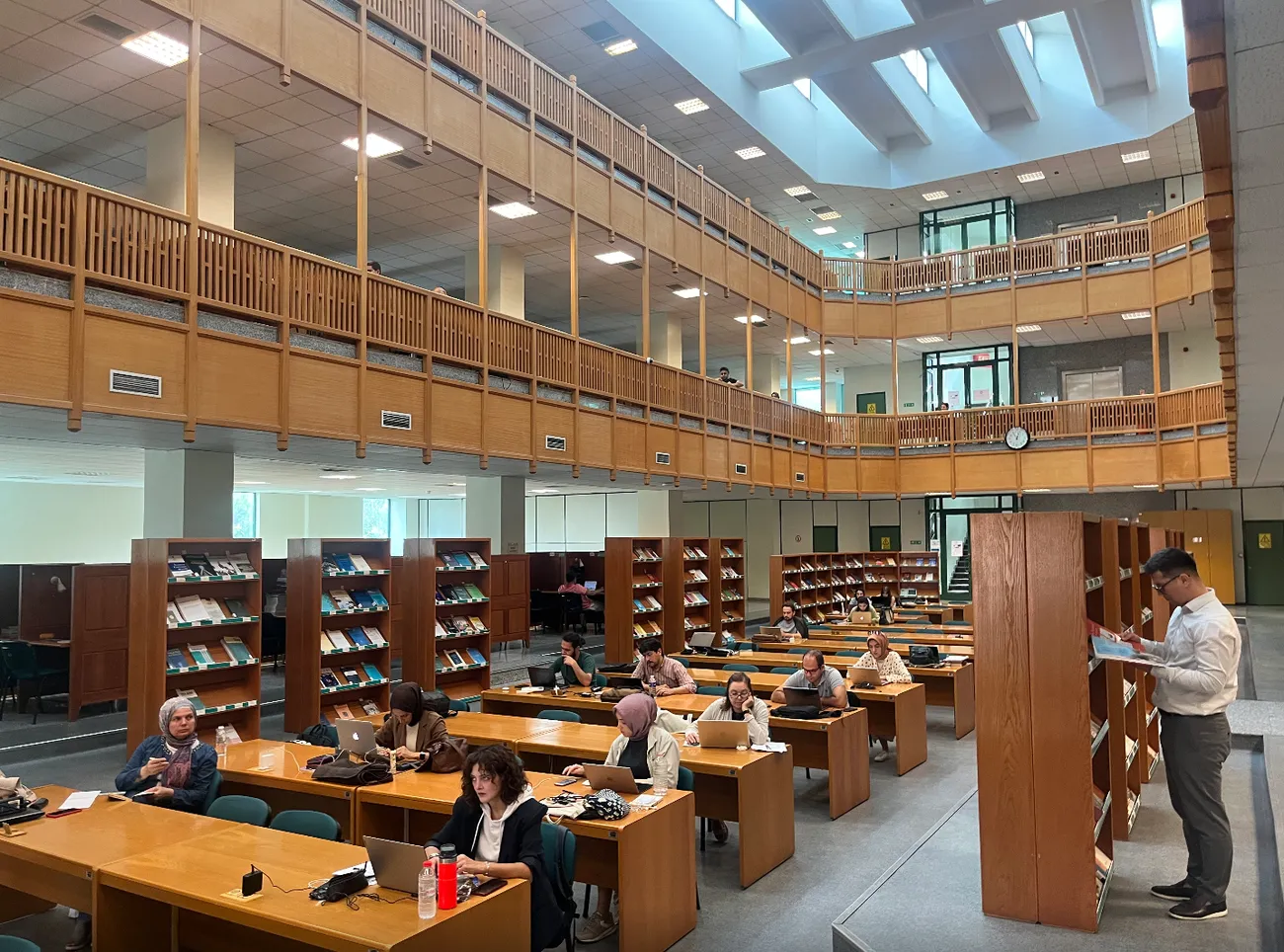
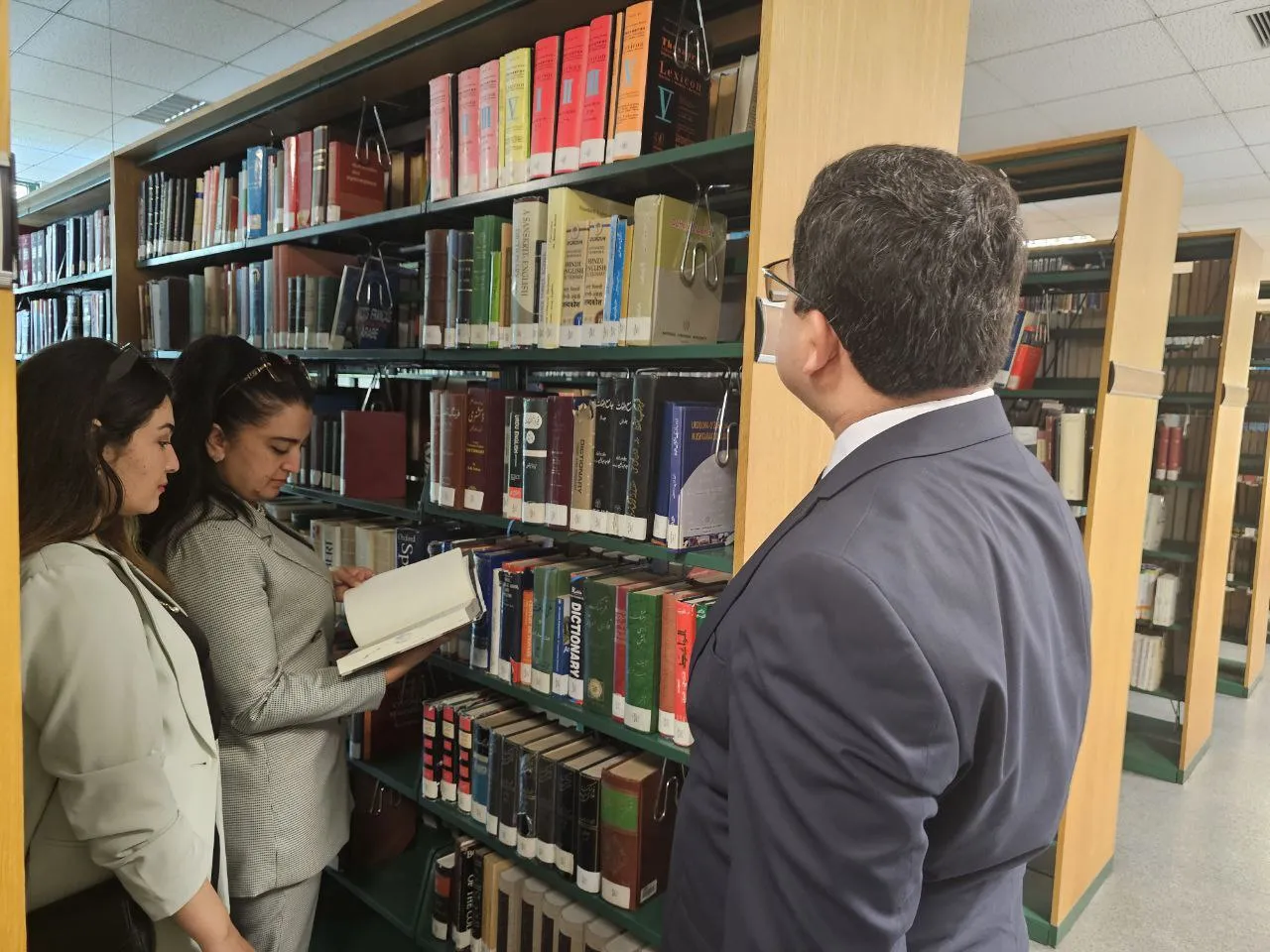
On September 17, staff from the Center for Islamic Civilization of Uzbekistan and the Imam Bukhari Research Center gave presentations about their centers at the Faculty of Theology of Ankara University and the National Library of Turkey under the Presidential Administration. Special attention was given to further enriching the corner of the Center for Islamic Civilization of Uzbekistan in the National Library of Turkey.
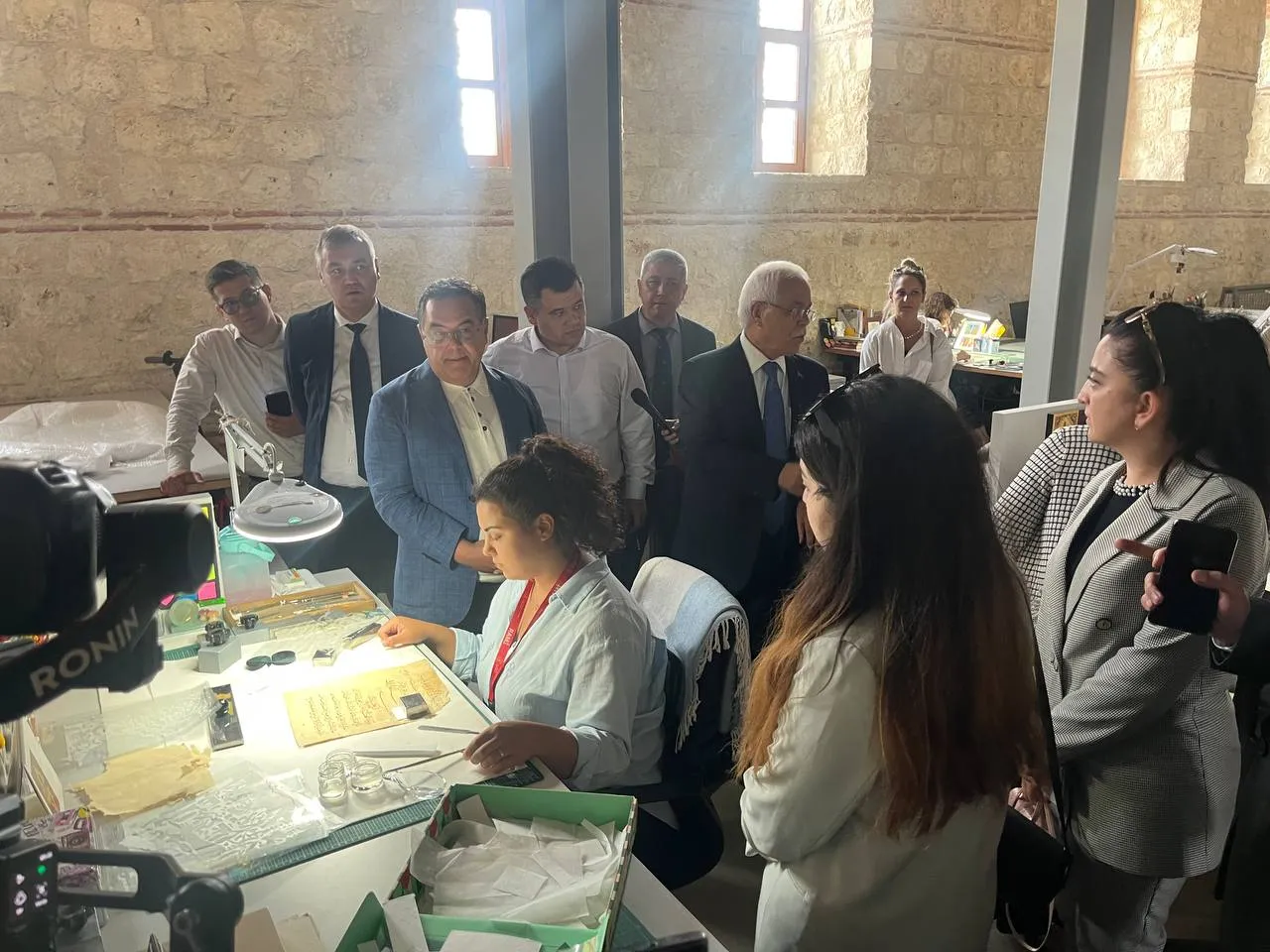
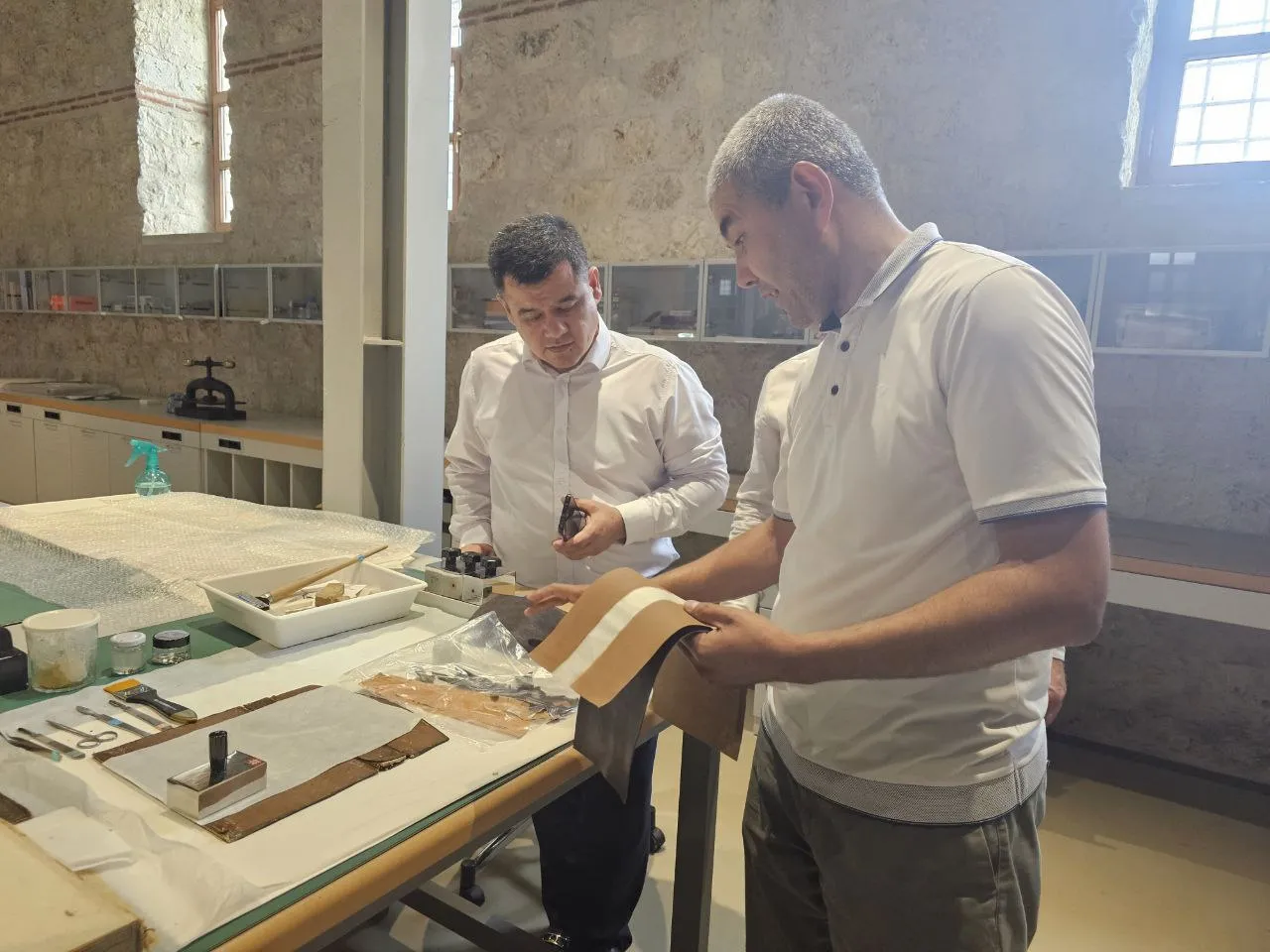
At the Süleymaniye Library, the manuscript collection was studied, storage conditions were assessed, and an exchange of experiences took place. The delegation members then visited the restoration laboratory of the Rumi Library, where they examined work processes and received information about the restoration of ancient manuscripts. Currently, a group of restorers from Uzbekistan is undergoing training in this laboratory.
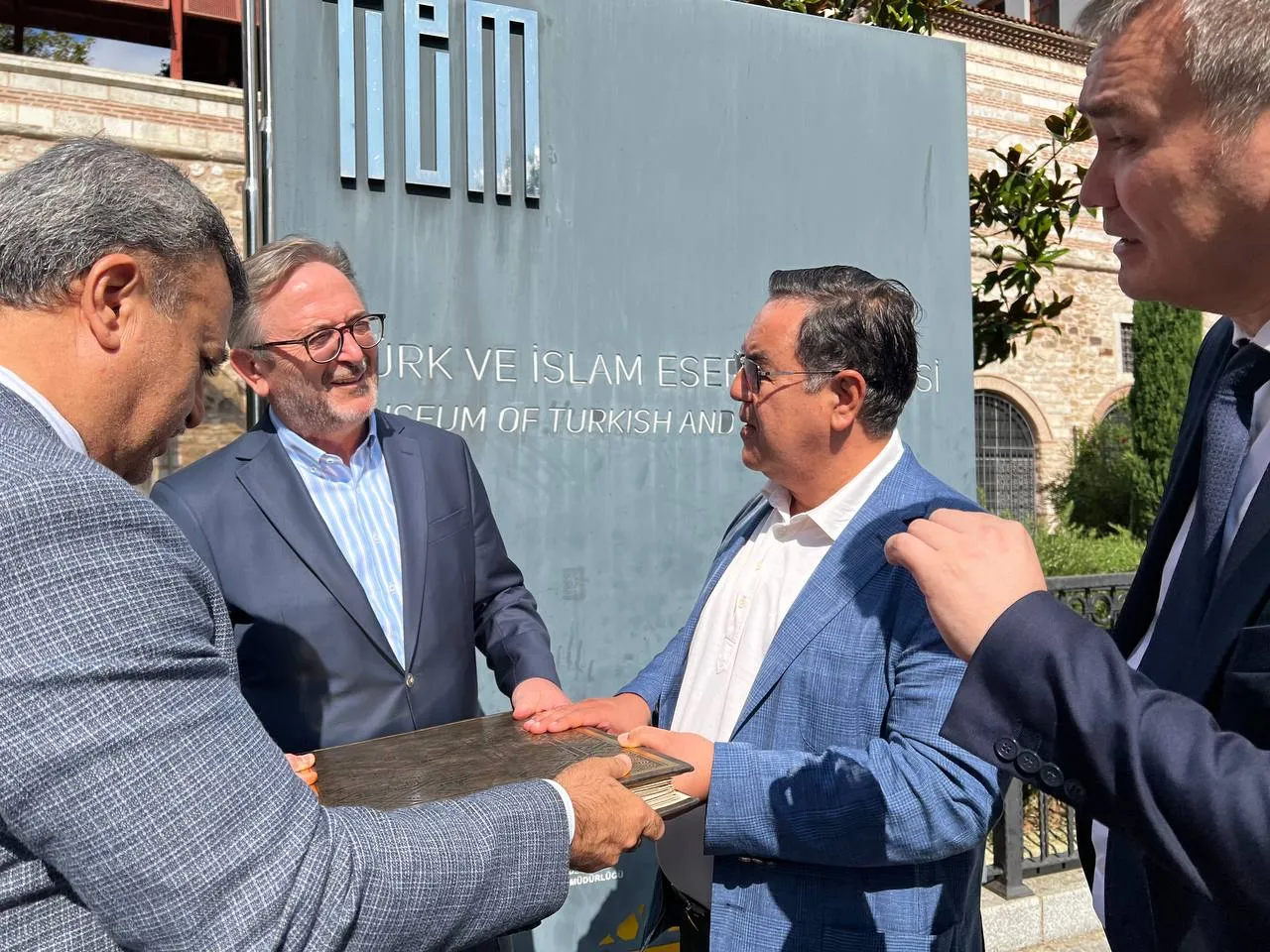
"The visit to Turkey was very impressive and beneficial," noted Firdavs Abdukhalikov, Director of the Center for Islamic Civilization of Uzbekistan. "A month ago, in Samarkand, at the International Congress 'The Heritage of Great Ancestors – The Foundation of the Third Renaissance', around 40 Turkish scholars participated and proposed over 30 projects to expand the activities of our center. We held meetings with these specialists to continue working on these projects.
Becoming acquainted with the cultural heritage of Uzbekistan preserved in Turkish museums and libraries has strengthened our conviction in the close connection between the history and culture of our two nations. The results of this visit will be of great significance in guiding our future work."
